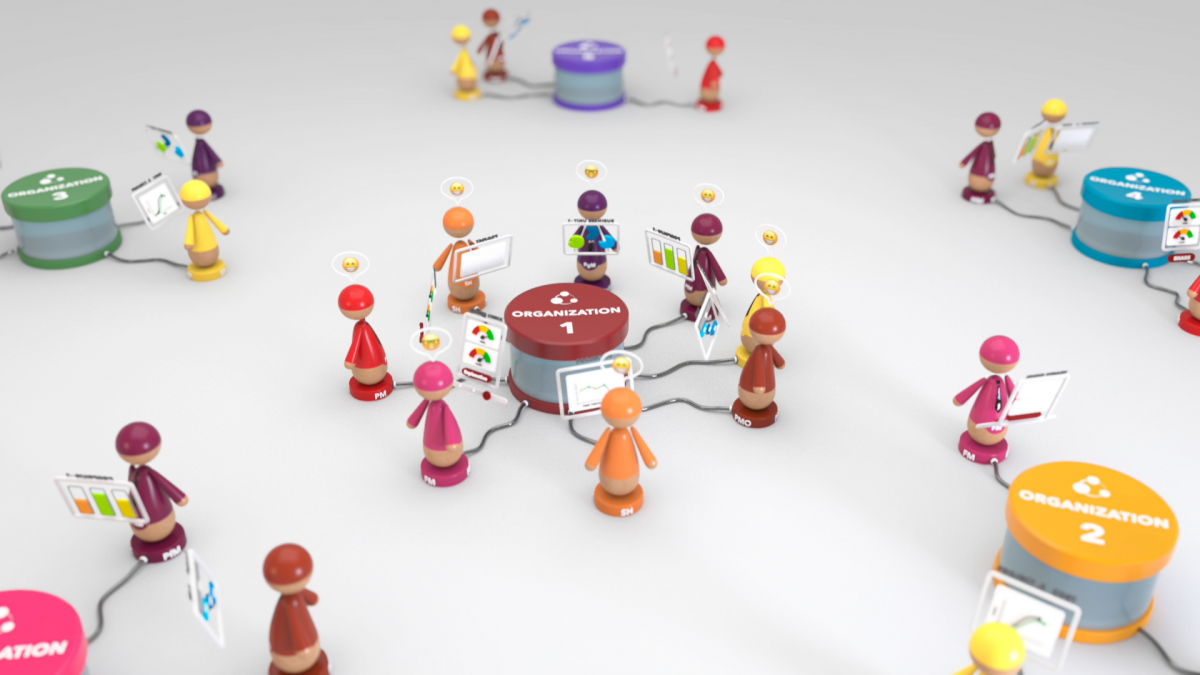In the Economía de Proyectos, people can proactivelly collaborate on professional project management, with less paperwork, documents and face to face meetings. They can follow the good practices at the new version of the PMOK Guide: follow 12 principles, demonstrate good performance on 8 domains.
All people related to projects, be them stakeholders, team members, etc, have a voice on professional project management. They should talk about status reports, changes, risks, milestones, baselines, etc.
Any project is first an idea. Good ideas are approved and the projects are executed to turn ideas into reality. At the end of the project, we get a product, a service, or a final result. But some ideas are more complex than others. Some projects require lots of money, time and resources. Organizations assign teams to meet the business goals, and the team members work together on many elementary tasks. Traditionally, all these project tasks were managed bottom up with paper reports: Project Managers knew how to summarize project details up to the information which is meaningful for top managers. and the PMO was able to facilitate project governancein face-to-face meetings with stakeholders. This worked fine when there were only a few projects running at the same time.
However, with the advent of the Project Economy, organizations have to execute more and more projects at the same time. In the Project Economy, organizations and people need to change how they manage projects.
Today, technology is good enough to manage projects better than through meetings or paperwork.
People can link and manage projects in the cloud:
- Collaborating online using their computers, tablets, or mobile phones anybody can connect from their specific role to have just the information they need, in real time.
- All the low-level day-to-day project data can be effectively reported while the project events are happening, and people get the right information in real time in the right format for them to make the right decisions.
The Project Manager can easily share how the project is performing today:
- The Functional Manager notices this project is running late, but he understands the explanation given by the Project Manager.
- The Sponsor is not happy about the expected over cost.
In the Project Economy everyone should have a voice: Team members need to know how the project is doing as of today. Stakeholders also need to know which is the project status. Let’s set an example:
- Let’s say one stakeholder knows how to unblock a process.
- One team member proposes a better tool.
- The Project Manager appreciates these solutions he could not have imagine alone, and takes the proper corrective action in the right time.
In our example, this process is unblocked, and the new tool is speeding up work!
In the next project status report, people can check how project performance has improved. Again, the Project Manager shares the new project status:
- The Functional Manager notices the project is now on time.
- Past status reports are still there so that he can compare the current status with the previous ones.
- Everybody can tell this project is professionally managed.
Now, this organization can succeed in the Project Economy!
PMPeople is the tool for the project economy. It is aimed to unify professional project management by these differential points:
- Designed by and for professional project managers, following professional project management standards.
- Online productivity –less meetings, less documents, less workflows– through distributed collaboration among 12 specialized roles: Organization Owner, 6 roles on demand management and 5 roles on supply management.
- Freemium product –unlimited time, unlimited users– usable via web and mobile application.
Start using PMPeople for free, for unlimited time and for any number of users. In premium organizations, only managers have a cost. Several roles –stakeholders, team members, sponsors and resource managers– are always free. You can increase or decrease your premium seats according to the organization actual needs. Premium organizations have access to our interactive support through Slack. Our servers are located in EU. This software can also be hosted on customer premises.
Jose Barato
Related posts
Categories
- Business (16)
- Demand Management Roles (14)
- Frequently Asked Questions (7)
- Guide (26)
- People (23)
- Assignments (2)
- Feedback (2)
- Project Team (3)
- Tracking Time And Expenses (2)
- Process (9)
- Closing (2)
- Executing And Controlling (2)
- Planning (1)
- Project Management (67)
- Management Frameworks (18)
- Organization Owner (OO) (3)
- Project Economy (54)
- Tools (19)
- Supply Management Roles (5)
- Training (6)
- Uncategorized (1)





